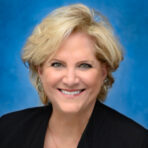Financial professionals can help solve the financial literacy riddle

In 2019, only six U.S. states guaranteed a standalone personal finance course for all high schoolers, according to Next Gen Personal Finance. Fast-forward to today, and the landscape of financial education has shifted. Now, 23 states have embraced the importance of equipping today’s students with the essential personal financial comprehension they will need to navigate life’s complexities.
But the need for financial literacy isn’t limited to high school students. The 2022 TIAA Institute-Global Financial Literacy Excellence Center Personal Finance Index revealed a concerning reality for many American adults.
On average, adults could only correctly answer half of the 28 basic money questions in the Personal Finance Index. Even more alarming, 23% of adults could only answer up to seven of these questions correctly, highlighting the pressing need for improved financial literacy across all age groups and demographics.
The good news is that financial planners and other professionals are stepping up to the challenge. They are playing a pivotal role in enhancing the financial literacy of both adults and students by leveraging their expertise and dedication to improving financial literacy and wellness across the country.
Financial professionals have a unique opportunity to contribute to the growth of financial literacy in the U.S. Here are some ways they are making a difference — and you can as well.
» Use your knowledge and skill to provide educational workshops. You can organize and conduct educational workshops on various basic financial topics, such as budgeting, saving, investing, retirement planning and college funding, among others. If you are thinking about offering such workshops to your clients, be sure to involve their children as well.
» Share valuable information and resources. While you can personally develop and share resources, such as articles and videos that explain financial concepts, consider leveraging the terrific resources that respected organizations provide. The Jump$tart Coalition for Personal Financial Literacy, the National Endowment for Financial Education, and Junior Achievement are three such organizations that are doing some amazing work to promote and foster financial literacy and wellness among students and adults.
» Get involved in local school programs. As mentioned, more and more states are developing requirements for students to take a personal finance course as part of their curriculum. Reach out to your local high school to learn about opportunities to leverage your background to support the programs, even if that means supporting and training the teachers tasked with people tasked with teaching the courses.
» Seek collaboration with local nonprofits and community organizations. Within your community, there are likely several organizations that exist to provide education, training and support to adults and children. Review what organizations exist and reach out to see whether there is an opportunity to support existing programs or develop new programs that help their audiences build their financial acumen.
If you do this, think about your personal passions and look to work with organizations that match those passions. For example, if you are passionate about working with women in crisis, see whether a local women’s shelter or support group will want to work with you to offer training.
» Get involved with professional groups that offer volunteer initiatives. Leverage your professional affiliations with membership organizations and trade associations to see how you can get involved with current or planned financial literacy programs.
One such group is the Financial Planning Association, of which I am proud to be the current national volunteer president.
Many FPA chapters and members across the nation have taken it upon themselves to proactively engage their local communities to improve the financial literacy of students and adults. In 2022, FPA chapters reported hosting 230 financial literacy workshops, attracting 17,302 consumers — an impressive 212% increase from the 5,546 attendees in the previous year. Moreover, 962 individual FPA members offered 4,424 consumers an impressive 11,506 hours of pro bono financial planning services.
While FPA, its chapters and its members are committed to improving financial well-being, so are many other professional organizations with which you may be affiliated. I implore you to consider the positive impact you can have on current and future generations of Americans by taking the time to use your knowledge and experience to benefit others.
By empowering Americans with financial knowledge and skills, we can help pave the way for a brighter, more financially secure future for all.
Claudia Cypher Kane, CFP, CIMA, CPWA, ADPA, CDFA, is the 2024 president of the Financial Planning Association and is based in Roseville, Calif. Contact her at [email protected].






Proposed fiduciary rule: A threat to advisors and investors
The new DOL proposal is not in consumers’ best interests
Advisor News
- LTC: A critical component of retirement planning
- Middle-class households face worsening cost pressures
- Metlife study finds less than half of US workforce holistically healthy
- Invigorating client relationships with AI coaching
- SEC: Get-rich-quick influencer Tai Lopez was running a Ponzi scam
More Advisor NewsAnnuity News
- Trademark Application for “EMPOWER MY WEALTH” Filed by Great-West Life & Annuity Insurance Company: Great-West Life & Annuity Insurance Company
- Conning says insurers’ success in 2026 will depend on ‘strategic adaptation’
- The structural rise of structured products
- How next-gen pricing tech can help insurers offer better annuity products
- Continental General Acquires Block of Life Insurance, Annuity and Health Policies from State Guaranty Associations
More Annuity NewsHealth/Employee Benefits News
- NC Medicaid leaders seek new funding strategy as work rules loom
- Researchers to study universal health care, as Coloradans face $1 billion in medical debt
- Study Findings on Chronic Pain Are Outlined in Reports from Brody School of Medicine at East Carolina University (Associations of Source and Continuity of Private Health Insurance with Prevalence of Chronic Pain among US Adults): Musculoskeletal Diseases and Conditions – Chronic Pain
- As health insurance costs rise, locals confront impacts
- Plainfield, Vermont Man Sentenced to 2 Years of Probation for Social Security Disability Fraud
More Health/Employee Benefits NewsLife Insurance News